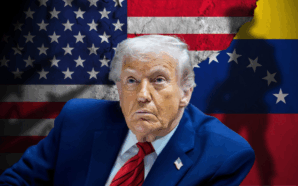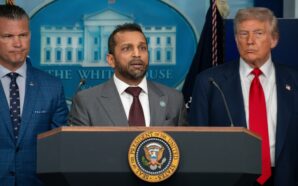
Credit: Unsplash
As Claudia Sheinbaum prepares to take office as Mexico’s first female president on October 1, concerns are escalating in Washington over her political alliances and the possibility of increased Chinese influence on America’s doorstep. Sheinbaum, elected on a radical Left platform, is seen as a figure who aligns with global powers that challenge the West, including China and Russia.
A growing fear among U.S. officials is that Sheinbaum could open the door for China to establish a massive spy hub right on the U.S.-Mexico border. With Chinese investments booming in Mexico, particularly in industries that export goods back to the U.S., there are worries that this influx of Chinese money and influence could extend beyond legitimate trade to more insidious purposes, including intelligence operations.
Reports suggest that China’s growing presence in Mexico could be a backdoor for illicit activities, from facilitating the flow of fentanyl to the U.S. to embedding intelligence-linked products, such as phones and electronics, into the American market. Given China’s history of using technology for surveillance, experts warn that Chinese-made products assembled in Mexico could be weaponized for espionage purposes.
U.S. officials are particularly troubled by Chinese tech giants Huawei, ZTE, and Hikvision, which have already established a foothold in Mexico, despite being sanctioned by the U.S. These companies are involved in key infrastructure projects south of the border, raising fears that Mexico could become a “giant Cuba” – a hostile listening post for Beijing.
Sheinbaum’s stance on the U.S. border crisis has also raised eyebrows. While Washington blames Mexico for the influx of migrants and drugs, Sheinbaum has publicly pointed the finger at the U.S., accusing American demand for drugs of fueling cartel violence in Mexico. Her comments have deepened concerns that her administration may not cooperate fully with Washington on key issues such as border security and cartel crackdowns.
Adding to the anxiety is Sheinbaum’s close ties with Chinese leader Xi Jinping. Mexico’s deepening trade relationship with China, driven by massive investments in Mexican industries, has only stoked fears that Sheinbaum could allow further Chinese influence to seep into critical sectors of the Mexican economy, potentially compromising U.S. security.
Republican and Democratic lawmakers alike are watching closely, with some predicting that under Sheinbaum, Mexico could become a proxy for China’s geopolitical ambitions. With the U.S. already facing Chinese espionage threats in Cuba, many are now questioning whether Mexico is next.
If Sheinbaum aligns herself too closely with Xi and China’s vision for a “multi-polar” world order, she could push Mexico down a path that threatens to destabilize relations with the U.S. and endanger national security.
As Mexico prepares for its new era under Sheinbaum, the U.S. is bracing for what could be a dangerous shift in geopolitical dynamics right on its southern border.
-
Credit: Shutterstock The U.S. Department of Justice on Friday unveiled its most extensive disclosure yet in the Jeffrey Epstein...
-
Credit: Shutterstock In a dramatic reset aimed at cooling tensions, Border Czar Tom Homan has ordered Border Patrol leadership...
-
Credit: Shutterstock Former President Donald Trump has once again ignited global controversy—this time by reviving his push for U.S....
-
Credit: Shutterstock Political tensions across the Americas surged this weekend after former U.S. President Donald Trump issued stark warnings...
-
Credit: Shutterstock Minnesota Governor Tim Walz responded Sunday to mounting concerns over a major fraud scandal after a viral...
-
Credit: Shutterstock The Department of Justice has reversed course and restored previously removed images from the Jeffrey Epstein document...
-
Credit: Shutterstock The world of film, television, and political activism is reeling from the sudden and devastating news of...
-
Credit: Shutterstock JPMorgan Chase CEO Jamie Dimon delivered an unusually direct rebuttal this week after Trump Media & Technology...
-
Credit: Shutterstock A shocking new 115-page report has peeled back the curtain on life inside the FBI under Director...
-
Credit: Shutterstock Bay Area residents who recently glanced up over the Golden Gate Bridge were treated to an unexpected...
-
Credit: Shutterstock As President Donald Trump abruptly turned against Rep. Marjorie Taylor Greene, one of his most vocal supporters,...
-
Credit: Shutterstock In a dramatic twist that’s sent shockwaves through both sides of the Atlantic, U.S. President Donald Trump...




















